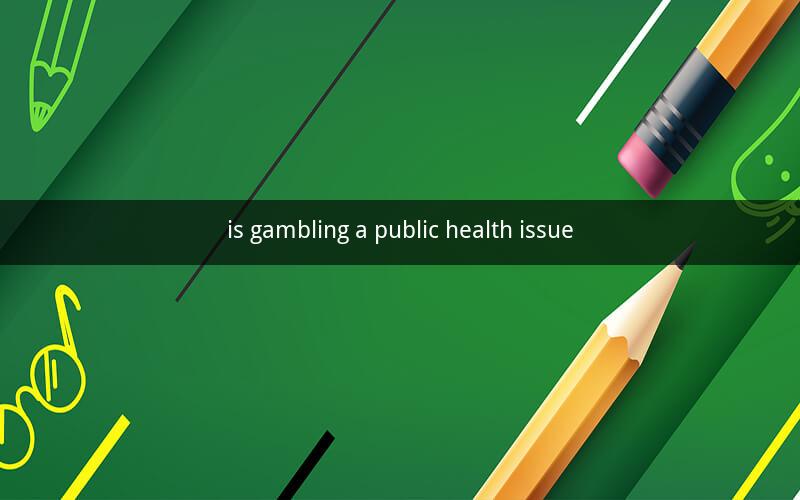
Directory
1. Introduction to Gambling and Public Health
2. The Link Between Gambling and Mental Health
3. Physical Health Impacts of Gambling
4. Economic Consequences of Problem Gambling
5. Social and Family Implications of Gambling
6. Prevention and Intervention Strategies
7. Case Studies and Statistics
8. The Role of Policy and Regulation
9. Public Awareness and Education
10. Conclusion
1. Introduction to Gambling and Public Health
Gambling, an activity involving betting money or something of value on an event with an uncertain outcome, has been a part of human culture for centuries. However, with the advent of the internet and the proliferation of online gambling platforms, its accessibility and potential for harm have increased exponentially. This essay explores whether gambling should be considered a public health issue, examining its effects on mental, physical, economic, and social well-being.
2. The Link Between Gambling and Mental Health
Problem gambling, characterized by the inability to control gambling behavior, has been linked to a range of mental health issues. These include depression, anxiety, substance abuse disorders, and even suicidal thoughts. The psychological distress caused by problem gambling can lead to increased stress, sleep disturbances, and overall diminished quality of life.
3. Physical Health Impacts of Gambling
While the direct physical health impacts of gambling may not be as apparent as those of other addictive behaviors, they can still be significant. Problem gamblers often experience high levels of stress, which can lead to hypertension, heart disease, and other stress-related conditions. Additionally, the sedentary nature of gambling, particularly online, can contribute to a sedentary lifestyle and associated health risks.
4. Economic Consequences of Problem Gambling
The economic burden of problem gambling is substantial. Individuals with gambling problems may experience financial ruin, leading to debt, bankruptcy, and eviction. This can also have a ripple effect on the economy, as problem gamblers may default on loans, reduce their spending, and contribute to increased unemployment rates.
5. Social and Family Implications of Gambling
Problem gambling can have devastating effects on social and family relationships. It can lead to marital discord, domestic violence, and strained relationships with children and other family members. The secrecy and shame associated with problem gambling can also isolate individuals from their support networks.
6. Prevention and Intervention Strategies
Efforts to address gambling-related public health issues involve a combination of prevention and intervention strategies. These include public education campaigns, early identification and treatment programs, and the development of policies that restrict access to gambling and promote responsible gaming.
7. Case Studies and Statistics
Numerous case studies and statistical analyses have highlighted the seriousness of gambling-related public health issues. For example, a study in the United Kingdom found that problem gambling was associated with increased rates of mental health problems, financial difficulties, and social isolation.
8. The Role of Policy and Regulation
Government policies and regulations play a crucial role in addressing gambling-related public health issues. These can include restrictions on advertising, age verification requirements, and limits on the number of gambling outlets. Effective regulation can help protect vulnerable populations and reduce the negative impacts of gambling.
9. Public Awareness and Education
Public awareness campaigns and educational initiatives are essential for addressing gambling-related public health issues. By providing information about the risks of gambling and the signs of problem gambling, these programs can empower individuals to make informed decisions and seek help when needed.
10. Conclusion
In conclusion, gambling should indeed be considered a public health issue. Its potential to harm mental, physical, economic, and social well-being is significant, and the consequences can be far-reaching. By implementing a comprehensive approach that includes prevention, intervention, and regulation, societies can mitigate the risks associated with gambling and promote the health and well-being of their citizens.
---
Questions and Answers
1. Q: What are the most common mental health issues associated with problem gambling?
A: The most common mental health issues include depression, anxiety, substance abuse disorders, and suicidal thoughts.
2. Q: How does problem gambling affect physical health?
A: Problem gambling can lead to stress-related conditions such as hypertension, heart disease, and other health issues associated with a sedentary lifestyle.
3. Q: What are the economic consequences of problem gambling?
A: The economic consequences include financial ruin, bankruptcy, increased unemployment rates, and a reduction in overall economic activity.
4. Q: How can governments regulate gambling to protect public health?
A: Governments can regulate gambling by imposing restrictions on advertising, requiring age verification, and setting limits on the number of gambling outlets.
5. Q: What is the role of public awareness campaigns in addressing gambling-related public health issues?
A: Public awareness campaigns educate the public about the risks of gambling and the signs of problem gambling, empowering individuals to make informed decisions.
6. Q: Can online gambling be more harmful than traditional gambling?
A: Yes, online gambling can be more harmful due to its accessibility, anonymous nature, and the potential for rapid, uncontrolled losses.
7. Q: What are some effective prevention strategies for problem gambling?
A: Effective prevention strategies include early identification and treatment programs, public education campaigns, and policies that restrict access to gambling.
8. Q: How can families support a loved one with a gambling problem?
A: Families can support a loved one by providing emotional support, seeking professional help, and creating a supportive environment that encourages change.
9. Q: Are there any treatments available for problem gambling?
A: Yes, treatments for problem gambling include therapy, counseling, and support groups, similar to those used for other addictions.
10. Q: Can gambling-related public health issues be prevented entirely?
A: While complete prevention may be challenging, implementing comprehensive strategies can significantly reduce the prevalence and impact of gambling-related public health issues.